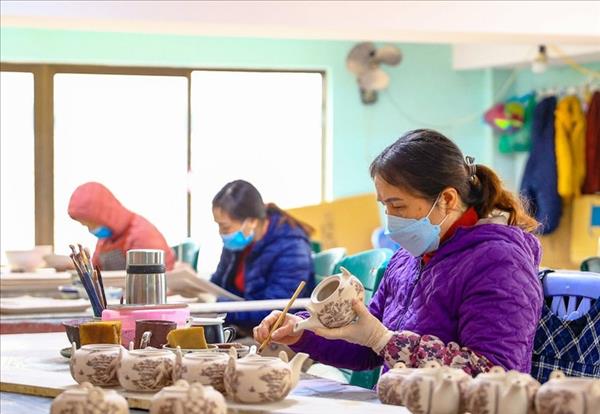The rainy season is an ideal environment for many seasonal diseases and puts the region under high risk of a swine flu outbreak.
Since the beginning of the year, the Mekong Delta has recorded four deaths from swine flu, including one in Vinh Long province, one in Ca Mau province and two in Ben Tre province. Many swine flu cases have also been recorded in Hau Giang province.
Phan Thanh Tung, Deputy Director of Hau Giang province’s Department of Health, said in April it had launched a campaign to prevent and control A/H1N1 flu, providing treatment guidance to locals. Localities report weekly to the department and the province’s steering board for epidemic prevention.
Meanwhile, Vinh Long province’ health sector has worked with authorities in Tam Binh district to check the temperatures of relatives and medical staff who have had contact with a woman who died from swine flu.
The situation is stable, but the province is encouraging people to get flu vaccinations, said Nguyen Cong Tuan, Deputy Director of Vinh Long province’ Department of Health.
After the first A/H1N1 case, Can Tho city’s Health Department sent information about preventive measures to private medical facilities and public hospitals in the province.
Surveillance has been enhanced to detect any suspected case of influenza A/H1N1 at health care facilities or community-based care. Hospitals and clinics have prepared enough vehicles, medical equipment and medicine to tackle any outbreak.
Deputy Director of Can Tho city’s Department of Health, Nguyen Trung Nghia, said that swine flu A/H1N1 usually occurred with early symptoms such as high fever, coughing, headaches and muscle pains. Most infected people can recover in a week without special treatment.
However, it can become severe in people over 65 years old, children under five, pregnant women and people suffering chronic diseases such as diabetes, kidney failure, obesity and chronic obstructive pulmonary disease.
He recommends that people should be vaccinated and go to hospitals or medical facilities if they show signs of swine flu.
The influenza A/H1N1 virus can survive for 24–48 hours on the surface of tables, chairs, cabinets and handrails, eight to 12 hours on clothing items, and around five minutes on the palm of the hand.
It can also survive four days in bodies of water at temperatures of 22 Celsius degrees and live up to 30 days at temperature of zero Celsius degrees. Thus, swimming pools at hotels could be a site for the virus to develop, especially in the rainy season.
The disease is easily transmitted from person to person through respiration spread from sneezing or coughing, or through direct contact with objects containing the virus.
It has similar symptoms to seasonal flu and can be diagnosed by collecting nasal and throat fluids for testing.
Doctors recommend that people pay attention to personal hygiene; clean up their environment around houses, classrooms and workplaces; avoid direct contact with A/H1N1 patients or people suspected of being infected; and do not use drugs without permission.
VNA/VNP

















